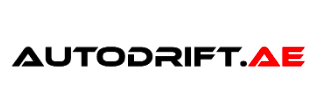Nissan’s presence in the Middle East spans across six decades, beginning in 1956 with the introduction of the iconic Nissan Patrol in Kuwait. Since then, our product portfolio has seamlessly integrated into the cultural tapestry of the region, meeting a diverse spectrum of customer needs.
Over the years, and with a steady increase in demand across the region, Nissan made pioneering strides by becoming the first Japanese automotive manufacturer to establish a regional headquarters in the Middle East in 1994. Our expansion across the region has been underpinned by enduring relationships with our customers and partners, bolstering our presence and popularity in the Middle East.
Despite the recent macro-economic challenges within the automotive sector, we have successfully introduced several products and services over the past year. This includes the latest iterations of the Patrol and Patrol NISMO, which have continued to lead the segment and debut our innovative NissanConnect technology to customers in the region. Additionally, the launch of the all-new X-TRAIL, Altima, and Sunny have furthered our reputation as an innovative brand, with each of these models offering a variety of segment-leading technologies and holding their position at the forefront of their respective segments.
Aside from new model launches, we also introduced a diverse array of aftersales products and services aimed at enhancing ownership experiences in the Middle East. Notably, this included the introduction of Nissan Service which provides customers with greater value, convenience and trust. This was supported with the introduction of a range of Nissan Genuine and Nissan Value Advantage products, including Nissan Genuine Motor Oil (NGMO) fully-synthetic 5W30 which has gained popularity for its capability to deliver superior vehicle performance and protection.
Q2. The Nissan Patrol is an icon loved by many across the region, what makes this SUV so special to the Middle East?
Since its arrival in the region in the late fifties, the Patrol has emerged as an enduring icon passed down from one generation to the next. Renowned for its unmatched ability to conquer the most challenging terrains, the Patrol has forged a legacy rooted in heritage, power, and exceptional off-road prowess.
The 2023 Nissan Patrol not only builds upon the esteemed reputation of its predecessors but also delivers a captivating design, unparalleled off-road capabilities, and cutting-edge technologies. Among these innovations is NissanConnect, which empowers customers to control specific vehicle functions and set personalized alerts directly from their smartphones.
The region’s admiration for the iconic Patrol is further cemented through a diverse range of models tailored exclusively for the region. These include the adventure-oriented Patrol Super Safari, the commemorative 70th Anniversary edition, and the race-inspired Patrol NISMO, all crafted to meet the discerning tastes and preferences of our valued customers in the Middle East.
Q3. A few automotive companies have announced that they will be stopping production of internal combustion engine (ICE) vehicles by 2026, what is Nissan’s strategy in this space?
Nissan has committed to achieving carbon neutrality throughout its global operations and product life cycles by 2050. As a significant step in this direction, we aim to introduce exclusively electrified models for all new vehicles in key markets by the early 2030s. At the Japan Mobility Show which took place in October, we showcased five exciting all-electric concept vehicles: Nissan Hyper Urban, Nissan Hyper Adventure, Nissan Hyper Tourer, Nissan Hyper Punk, Nissan Hyper Force – each catering to unique customer needs.
While we are on the right path, it is crucial to acknowledge the varying pace of market evolution, which is heavily influenced by customer demands and readiness. In the Middle East region, it is pivotal to lead this shift by educating consumers and the general public about the environmental benefits of using EVs from a top-down level.
Presently, internal combustion engine (ICE) models continue to hold relevance from individual ownership and business operations across numerous markets. Nissan remains committed to offering a diverse and robust selection of conventionally powered vehicles to cater to the current preferences of customers across the region.
Q4. In many markets electric vehicles (EVs) are significantly more expensive than their ICE counterparts, what is the reason for this?
Presently, electric vehicles (EVs) command a higher price point compared to internal combustion engine (ICE) vehicles due to increased amounts of research and development (R&D) costs and the inclusion of key components, notably the battery, which constitutes a substantial portion of the overall expense. However, this is set to change in the near future.
Under our global initiative, Nissan Ambition 2030, we are making substantial investments in the in-house advancement of All Solid-State Batteries (ASSB). These innovative batteries boast nearly double the energy density of conventional lithium-ion batteries, significantly reduced charging durations, and cost efficiency.
Through these investments, we envision a reduction in all-solid-state battery costs to $75 per kWh by fiscal 2028, followed by an even more competitive decrease to $65 per kWh thereafter. This projection positions EVs on par with gasoline-powered vehicles in terms of cost-effectiveness in the foreseeable future.
Q5. Finally, there is an increased focus on sustainability in the automotive industry, what are some of Nissan’s key sustainability achievements?
As trailblazers in the industry, we have pioneered the world’s first EV manufacturing ecosystem, EV36Zero. This innovative framework revolves around our groundbreaking facility in Sunderland, UK, bolstering our pursuit of carbon neutrality while establishing a comprehensive solution for achieving zero-emission motoring.
Earlier this year, we announced our decision to incorporate Kobe Steel in the production of select models, marking a historic milestone as it is the first time this is being used in mass-produced vehicles. The utilization of Kobe Steel presents a significant reduction in CO2 emissions throughout the manufacturing process.
Within the Middle East region, we have also underscored our steadfast commitment to sustainability by securing a unique Guinness World Records™ title for the “Largest Tree Sentence” in the world by planting over 2,500 trees to form a line from the UAE National Anthem. Conducted in celebration of the 52nd UAE National Day, over 100 Nissan employees came together with members from our valued partners in the UAE, Al Masaood Automobiles and Arabian Automobiles Company, to plant Cidra trees to read “عاش اتحاد إماراتنا”, which translates to “Long live the unity of our Emirates”.
Earlier in the year, we also announced our plan to implement a cutting-edge solar energy system at our regional headquarters in Dubai. Anticipated to yield over 700,000 KWh of clean energy annually, this solar PV system will effectively offset 333 tons of CO2 emissions, aligning with our dedication to a cleaner and greener future for all.



